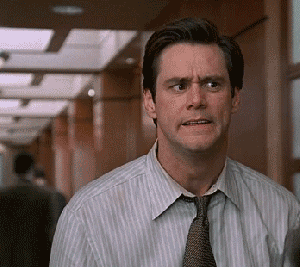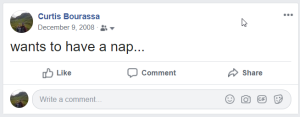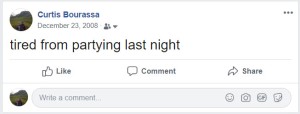Yesterday’s topic on the great debate was Is Social Media Ruining Childhood? It was Laurie and Christina agreeing with the statement and Amy and Dean on the opposing side. Coming into the debate, I sat somewhere on the fence (as I seem to often do).
Laurie and Christina highlighted the following reasons why they believed social media was ruining childhood.
- Affects Mental Health
- Cyberbullying
- Safety Concerns
Amy and Dean highlighted the following points on the opposing side of the argument. Their main argument focuses on,
- Allows for the spread of positive messaging and intentions
- The ability to connect with social media
- Social Media as a tool for creativity
- Kids who use social media are less lonely than others who use social media.
- Using social media to promote student voice
- Social Media isn’t ruining lives but changing how we interact in society
The Main Take-Aways:
Being an avid social media user myself, I was very torn between the two debates. I was able to relate to both of the debates quite well. Both videos provided excellent points on the positives and negatives of the topic. However, I am going to focus on two in-depth. Social media and mental health and social media for student voice.
Social Media’s Effects on Mental Health
Laurie and Christina highlighted the effect of social media on mental health. This is a valid concern, I’ve experienced it. To give you some light on a bit of social media and the life of Curtis. I was in middle school when Facebook and Twitter took off. I was in Grade 7 when I downloaded Facebook. I’ve grown up with social media as a major part of my life. Now, in the beginning, my main use of social media was to tell everyone the most mundane things (I’d like to think I’ve improved, even in the slightest). Check out the following most ridiculous Facebook statuses.
 Oh, the things I would say to “younger” Curtis… (13-Year-Old Curtis must have enjoyed his party).
Oh, the things I would say to “younger” Curtis… (13-Year-Old Curtis must have enjoyed his party).
Although these posts make me cringe today (and hopefully some of you laugh), I think it provides me an opportunity to reflect on my personal social media use.
Social media HAS affected my mental health. Often I find times where I need to take a break from social media. I often take this unplugged time at the end of a semester of a masters class because I get burnt out. Furthermore, I believe that social media often highlights the “highlight reel” of someone’s life. This curation of online life leads to comparison amongst each other, which in turn, leads to negative effects on mental health. I am guilty myself of falling in the trap of “social currency” where I have seemed validation through likes, retweets, etc. I have experienced the FOMO (fear of missing out). I have also experienced online harassment.
Bailey Parnell in Is Social Media is Hurting Your Mental Health? highlights all of these effects from social media. I would recommend that you look at Daina’s blog because she provides a concise summary of the following stressors in detail.
It is crucial to look at the four steps Parnell provides to fix it.
- Recognize the problem
- Audit your social media diet
- Create a better online experience
- Model good behaviour
Personally, since I know better, I do better. I believe that I have taken the four steps above to address my mental health in regards to social media. Daina, provides some wise words on the matter:
I can understand how as adults we can use these steps to edit our social media habits in order to improve our mental health, but what about our students?
Furthermore, In a previous blog post, I highlighted an article by CBC that found that researchers at Sainte-Justine Hospital in Montreal “found over and over the effects of social media (on mental health) were much larger than other types of digital screen time”. As educators, we need to be mindful of the stressors so we can provide support for our students.
Social Media for Activism and Student Voice
Throughout our discussion around the topic of social media, I think that it important to acknowledge the opportunity social media allows for activism and providing our students with a voice. Two examples of this include Autumn Peltier, a 15-year-old Canadian Water Activist. Autumn can spread her message through social media to reach a larger audience.
An article by the Washington Post illustrates that young people may share political information online, or use social media to get others to join a protest – such as during the Arab Spring, the Occupy Wall Street movement and the Black Lives Matter movement. Social Media provides virtual spaces that allow discussion and allow Black, Indigenous, and People of Colour (BIPOC) to get information through social media. According to a 2013 survey, “young people from socioeconomically disadvantaged households are more likely to get their political information from new online media sources than young people from households with more abundant resources”. The reality is that many millennials, including our students who are using social media to stay connected. This is increasingly evident with the BlackLivesMatter hashtag, as this hashtag allows the critical organization and information to be shared (hence why #BlackoutTuesday turned out to backfire, more about that here).
Dean and Amy’s post on 10 Examples of the Positive Impact of Social Media also highlight the ability for students to develop a voice of advocacy. Often this reinforces a sense of belonging and can be a positive influence when youth are exposed to the right outlets.
In Conclusion:
I’m still torn. I see this from both angles. But the reality is social media is not going away. We as educators need to embrace the technology and teach our students proper digital citizenship education. Perhaps looking at Mike Ribble’s 9 Elements for Digital Citizenship. Also, we need to be mindful of media wellness for ourselves and our students. However, we need to be mindful. Mindful of the platform and voice that social media provides. We may as well embrace it effectively, our students are using it.


Thanks for this thoughtful and personal post (your shares from back in the day are interesting – they seam pretty tame yet on the other hand could be a source of humiliation or regret). . I didn’t have social media when I was growing up but there were other pressures and mediums that promoted different agenda and the flow of the comments and messages went down a one way street. Like Daina said things have changed. I really like your point of mindfulness. We have a great opportunity with this medium to do some great and important things – your examples are very important – before news was only filtered through the power of a select few – now there are way more voices out which is good but challenging. I guess with this whole thing how to we approach this challenge – meet it head on (mistakes and all) or try to shy away and focus on the negatives.
Curtis, you make some great points in this blog post! The highlight reel curated for social media is definitely concerning to me. You can scroll through Instagram for about 6 seconds and see something amazing. At times this can be great but it can often lead to greater feelings of FOMO among other things.
As an education system as a whole, I wonder if we could do a better job of showing students how to use SM for advocacy and student voice. Although this would be amazing, I think this can be challenging and intimidating for many teachers.
Pingback: Social Dilemma: What is all the Hype? | Curtis Bourassa